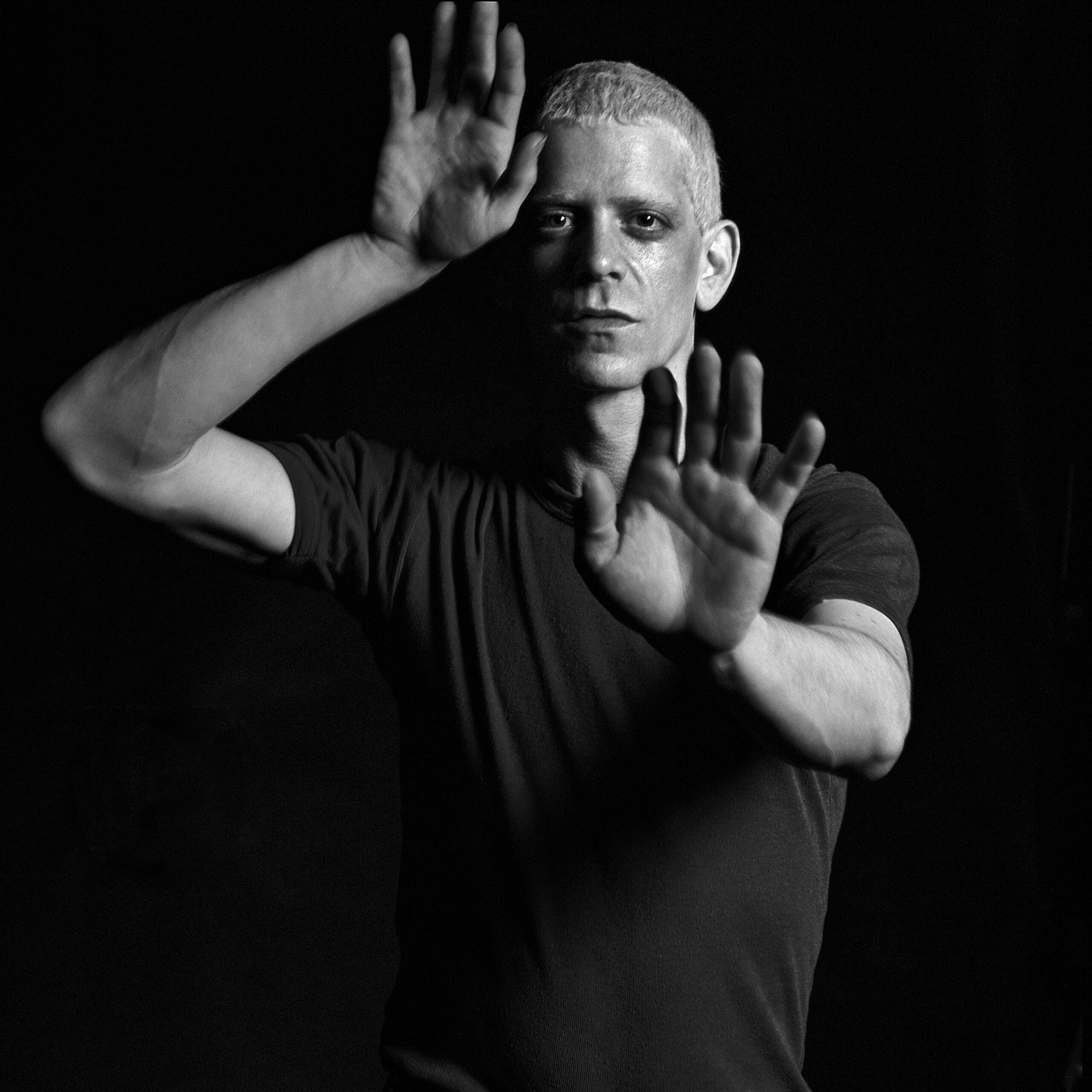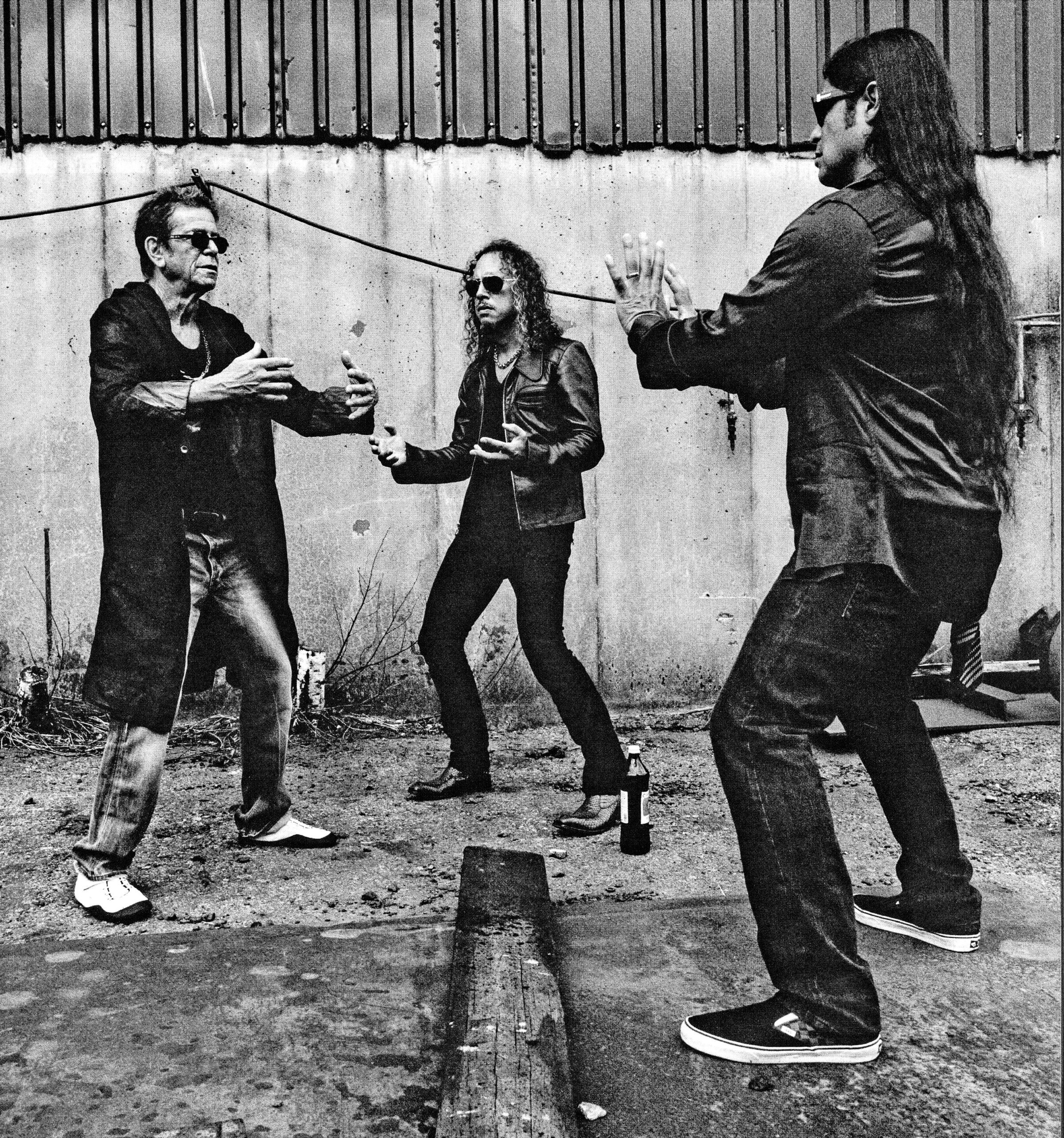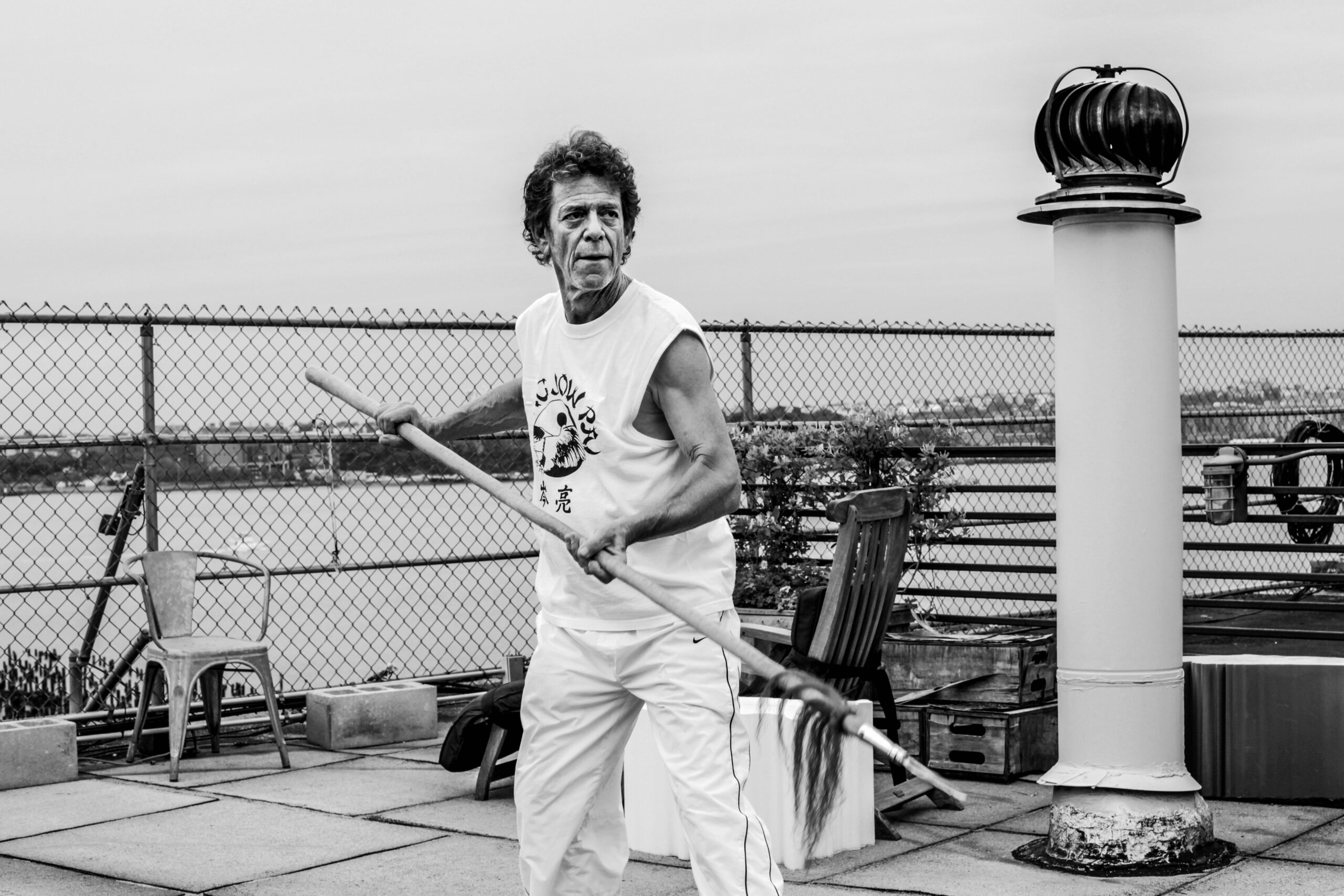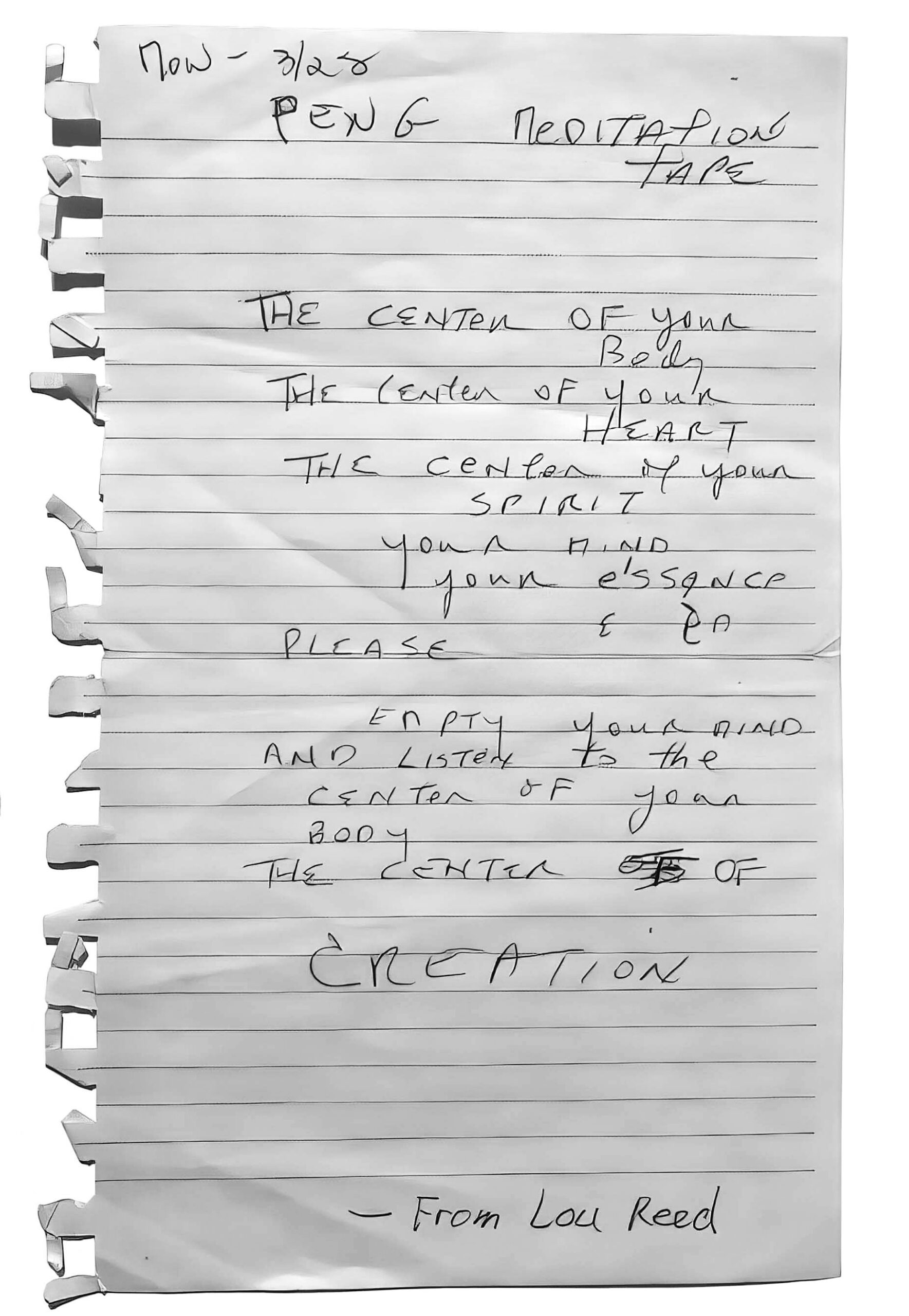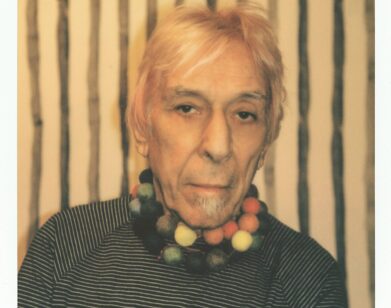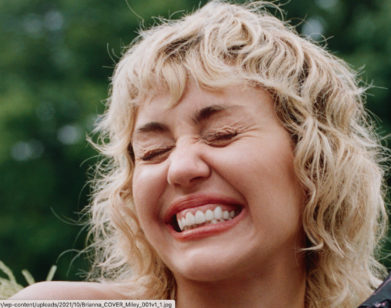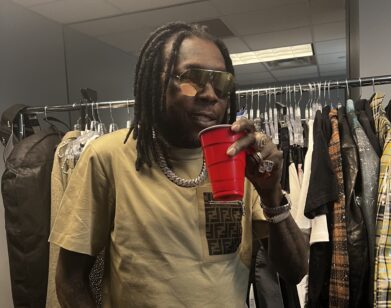ICONS
Laurie Anderson and Lars Ulrich on Lou Reed’s Love of Tai Chi
When I think of Lou Reed, there’s a lot that comes to mind: his guttural voice, his bleached blonde buzz from the ‘70s, The Velvet Underground and Nico poster I had on my wall in middle school, the way he never sang “Sweet Jane” the same way live. To me, he was the epitome of rock ‘n’ roll, of New York Cool. I even chased him down 11th Street once in the mid-2000s, only to get too nervous to actually say something when I got close enough. It was a humid summer day in the East Village, and he was wearing a leather jacket. Nearing his 70s by then, he still walked like he owned the place. But there was something different about him than I had imagined; he seemed softer, more peaceful. Though I didn’t know it at the time, Reed had become a master of Tai Chi.
A new book, The Art of the Straight Line: My Tai Chi, details his relationship with the ancient Chinese practice and gives readers a glimpse into how it transformed his life. Edited by Reed’s longtime partner Laurie Anderson and Chinese martial arts expert Stephan Berwick, with Bob Currie, and Scott Richman, the book is an inside look into Reed’s later life, featuring photographs, his intimate handwritten notes, and interviews with everyone from Iggy Pop and Julian Schnabel to Reed’s teacher Master Ren Guangyi and Lars Ulrich from Metallica. The drummer and his band collaborated with Reed on the 2011 record Lulu, an experimental heavy metal opus that took both Reed and Metallica out of their comfort zones. And while recording at Metallica’s HQ in San Rafael, the band and Reed did Tai Chi together. Below, Anderson and Ulrich reminisce about that time, the record, and their memories of Lou, illustrating how Tai Chi inextricably affected his work.—ALEX WEISS
———
LAURIE ANDERSON: How nice to see you.
LARS ULRICH: Sorry to leave you hanging. We’ve been in Amsterdam for… Today’s day 11, and the show is two days from now, the first show. And we’re way in over our heads.
ANDERSON: Really?
ULRICH: It always feels like that when you’re two days away from launching a world tour. Hopefully if I speak to you again in a couple days, I could tell you it all went fine. But right now it’s just like, ‘Oh my God, what have we gotten ourselves into?’ But we’re here now and it’s all good.
ANDERSON: It’s fantastic. It’s always shocking to me to hear that people are nervous. You’re such a master of this. How can you have any qualms about making just the greatest thing ever?
ULRICH: Thank you. But it’s because every so often, we completely throw away the playbook and start over.
ANDERSON: That’s so great.
ULRICH: So with this new tour it’s as much of a blank canvas as we’ve had for years, if not decades. The staging and the set lists and everything is completely just starting from zero. So, it’s really exciting, but it’s also, at the same time, daunting, because you’re a hundred percent out of your safe zone. And I think that it’s important, especially as you get older. You have to put yourself in that position.
ANDERSON: Yeah.
ULRICH: So it’s that combination of joy and excitement, but also, what the fuck are we doing? It shifts back and forth every day, every hour, every minute.
ANDERSON: Oh my god. Well, hats off for that, because that’s fantastic. You don’t have to do that, so it’s even more incredible.
ULRICH: Believe me, there’s been many times in the last week where I think about it. [Laughs] Are you in the apartment on 11th Street?
ANDERSON: No, I’m down in my studio on Canal Street. And you’re in Amsterdam and you’re launching two days from now.
ULRICH: Yeah, we’re doing two nights in every city, and we’re doing a hundred percent different set lists each night. So no songs are repeated from the first night to the second night.
ANDERSON: You’re hilarious.
ULRICH: It seemed like a really good idea in an email like a year ago…
ANDERSON: It is! It’s great. So, I wanted to show you—here’s Lou with some of your bandmates. Tell me about this day.
ULRICH: That’s in Gothenberg, right? I was actually with Anton Corbijn last night who took that picture. Anton is a dear, dear friend, who’s been taking photos of Metallica for coming up on 30 years, and has done obviously some of the most iconic album covers, like U2’s Joshua Tree, Depeche Mode, and countless other stuff. So, when we were talking about putting the record [Lulu] out, we talked about who could take some pictures of the five of us, and I suggested Anton. I’m not sure Lou, at least right off the bat, knew who he was. But I showed him some pictures, some of his work, and Lou, of course—which one of the many countless things we loved about him—was not overly impressed. He was not overly impressed with anything. But he agreed to work with Anton who we felt very, very safe with and trusted, and had worked with, I guess at that point for probably close to 20 years. We actually talked about it last night. I was mentioning to Anton that I was connecting with you today, and we were talking about our day in Gothenberg, which was in between a couple of Metallica shows. Lou found his way to Gothenberg and we were there and we were out at the shipyards all day.
ANDERSON: Oh, nice. Tell me just a little bit—I know people who are reading the book get a certain picture of you and Lou, but can you just tell me a little short story about how you met Lou and what he meant to you at the beginning? Before you got to know him that much?
ULRICH: Yeah, the first time, Jann Wenner and the Rock and Roll Hall of Fame crew threw a—I believe it was the 25th anniversary celebration of the Hall of Fame in, what are we talking, was it ’09?
ANDERSON: Yeah. I think it was ’09.
ULRICH: Yeah. At Madison Square Garden. And so the idea that they came up with was that three or four artists would host a segment, and I believe U2 hosted a segment, I think Springsteen hosted a segment. And then we were asked to host a segment representing harder rock. So we started coming up with artists that would fit into our world. We picked Dave Davies [from The Kinks], Ozzy [Osbourne], and Lou.
ANDERSON: Oh what a crew!
ULRICH: Listen, first of all, we—Metallica—were wondering if they had sent the invitation to the wrong people, or wondering how we ever ended up in that esteemed and respectful company. But obviously we were super-psyched and just looking at it as an incredible opportunity to connect with so many people that we respected and had idolized and who had inspired us for decades. So we were down at, I can’t remember—it was a rehearsal studio somewhere in Manhattan, and I can’t remember what order we did. But all three of them came in and when Lou came in, there were a lot of amplifiers and a lot of speakers and a lot of gear. And he came in, and things were terribly loud, and there was just a lot of stuff everywhere. I remember he just started like, “Why is all this gear here?” and would just instantly challenge everybody, which was great, because nobody ever questioned anything that was going on. He was like, ‘What are we doing here? Why is it so loud?’ And then as we started talking and trying to figure out exactly what material we were going to hone in on, somebody—I can’t remember who—said the word medley…
ANDERSON: Oh, god. Medley.
ULRICH: Yeah, exactly! Lou said, “I don’t do medleys.”
ANDERSON: I’m sure.
ULRICH: It went south from there and continued going south. I think he actually walked out, and I took it upon myself to go find him, and connect with him. He and I had a one-on-one for, I don’t know, maybe it was 10, 20 minutes, and we connected in a very nice way, and I encouraged him to ride it out, and to understand that however this was going to play out, that we would make it work for everybody, medleys or not. And as you know, more than anybody, within a short amount of time, it was a 180 and it was the beginning of a love affair and this incredible relationship. A few days later, we ended up playing this incredible set in front of Madison Square Garden and the world, and as we were parting that night, down in the bowels of Madison Square Garden, in like, underground level 23, as we were all going in a separate directions, Lou said, “Let’s work together one day on something in the studio, maybe make a record or something.”
ANDERSON: I remember that so well. I was there and I remember how excited he was. He was really like an eight-year-old boy. He was like, “Oh my god, these guys are so amazing.” That was the biggest thrill for him, yelling out to you like that.
ULRICH: Yeah, I’ll take that one with me forever. It was priceless.
ANDERSON: Tell me a little bit about Lulu, because that, for me, was one of the most intense parts of my life with Lou, when he was working on that record with you, and digging this stuff from way down at the bottom of his heart, things about his father, things about men and women and love and hate and spite… That record scared me. I just remember a conversation that I had with David Bowie and he said, ‘Make no mistake, this, in 25 years, will be considered Lou’s best work. This is so dangerous. And that’s who he is. People just don’t ever understand him, and they don’t get that they don’t understand him. They don’t get that he’s ahead of his time.’ I was really struck by that.
ULRICH: Sometimes it’s also easier to not understand it because it may require more work to try to actually envelop yourself in it.
ANDERSON: A lot of work. And painful work. It’s not fun stuff. If you are really listening on many levels, you could hear it as this incredible sound force field coming at you. But on another level, when you listen to “Junior Dad,” for example… Woah.
ULRICH: It’s incredibly powerful, and it’s incredibly naked. All the emotions are literally right there. There’s nothing—no filters, no masks, nothing that’s separating the artist or the sound of what’s coming out for the listener. You’ve got to proceed with a lot of caution.
ANDERSON: Yeah.
ULRICH: I don’t think we had really understood the intensity of the work and the scale of it, until probably somewhere towards the end of finishing it, when Lou and James [Hetfield, Metallica’s lead vocalist] and I started our coast to coast conversations about jumping into this project. James and I, and the rest of the band, were trying to figure out our role in it, to try to serve Lou, but also to bring to life what the musical bedrock could be to everything that was coming out on top of it. It was instinctive in the beginning. And for us, it was those kinds of impulsive and momentary musical reactions were not something that we had ever really done before, because with our own records and with our own process, it’s quite labor-intensive. And we do a lot of analyzing, we remove ourselves from the creative process to try to get some space, and an understanding of what it is we’re doing. But everything with Lou was about the moment, and that was something we weren’t prepared for, but when it happened —
ANDERSON: You recognized it.
ULRICH: It was so fucking liberating. It took a day or two, as we were going through those moments, and we were trying to come up with something that would work for Lou and for the scale of the project. And as we were working our way through the ideas and feeling them out, Lou said, ‘That’s great.’ The first couple of times it was like, ‘Well, thank you for that, let’s now go out and make it happen.’ But he would say, ‘No, no, no, that was great.’ As in, that was it.
ANDERSON: I know. He was a one-take guy.
ULRICH: The first couple of times it happened, it was just like, ‘What?’
ANDERSON: It’s shocking.
ULRICH: We were so unprepared for that and didn’t quite know how to react. And obviously, since we had not worked together before, we knew that part of the attraction was the unpredictability. But we didn’t know what that meant, Like, ‘Are we good for today, but then we’ll come back tomorrow and try again?’
ANDERSON: Nope. Not Lou. That’s it. We’re done.
ULRICH: Yeah. We definitely had to feel our way through it as the days went on. But again, circling back to the trust element that I mentioned, as soon as that trust was there, and as soon as we knew that we were all going to be safe, there’s a freedom that comes with that, and you just liberate yourself from all the shit that weighs you down. That was when we really just went into overdrive at a completely different level, and all this music and noise, and all these waves of craziness came out. Then Lou put these incredible words, and poetic thoughts, and lyrics, or however you want to characterize it, on top of it. The work was given birth to in two, or maybe three weeks of recording.
ANDERSON: Yeah, I remember how fast it was. But he’s a one take guy, and a lot of times, it’s strange to go with it. To have the trust in your intuition like that. I had a feeling that you guys really did it that way, because it felt really intuitive.
ULRICH: Yeah. It’s something that wasn’t in our arsenal until then, but we embraced it quickly. And like I said, there was an incredible—and I know this word is overused so much—but there really was just a freedom to it. Liberating is maybe a better word, because we just set ourselves free and trusted in the moment. There was no reason to go back to continuously readdress what had just happened.
ANDERSON: Yeah, that’s the way he lived. He wasn’t rehashing the past and he wasn’t trying to perfect it ever. It was just really rough and so honest. There’s a picture in the book of you, and it looks like you’re doing Tai Chi. Did he teach you some standing mountain moves or did he try to?
ULRICH: No, I learned from Kirk [Hammett, lead guitarist of Metallica], and Rob [Trujillo, Metallica’s bassist], but especially Kirk. He connected with Lou on that a lot.
ANDERSON: Maybe I’m making this up, but I see Tai Chi moves in your playing. Just these incredible moves you do… That’s Tai Chi. That’s power. Lou loved that about you so much—what you put physically into your playing.
ULRICH: Thank you. That means the world to me. Once this body gets warmed up, which obviously, increasingly as I get older, takes longer and longer, but once it gets warmed up, and the music takes over, and you start getting in the zone—it does get pretty physical. I do liken it to growing up in a very athletic family. My dad was a tennis player, his dad was a tennis player, my uncle was a tennis player. They’re all tennis players. I’m actually the first one that didn’t really pursue tennis.But I did imagine for many years that I was going to follow in their footsteps. And so I’ve always likened my playing to tennis, and I think this is where it overlaps with Tai Chi—it’s about balance. The core element in tennis is just balance and centeredness. How you move—the forehand, the backhand, the rest of it, it’s always back to that center point, and it’s the same thing, or similar, in drumming. There’s a center point. Not to get into the crazy technical elements of it, but I do feel that it’s all just about balance.
ANDERSON: But also, power. As I’m watching you describe this and use your hands, you’re doing all of these moves that look like serves. And when you watched Lou play, his hands had this softness to them, and a very relaxed feeling, but also power. That always blew my mind because in Tai Chi he also was able to use his hands in a way that was strong and soft at the same time. I think that’s what makes the hands of a musician. And I see that in you, even just when you’re describing stuff. But Lou, in the last page of the book, he goes, “My Tai Chi has protected my body.”
ULRICH: Diving into it this last week, one of the main themes is about the physical strength that Tai Chi gave him and how obviously vital it was to him. But was it important for him to feel physically strong from a mental point of view?
ANDERSON: Those were very linked—his mental state and his physical state—and he knew that if he was feeling just awful, he would try to practice. We also didn’t do too much with meditation in this book, but he was a really awesome meditator and he knew a lot more about that than I thought. I came across a notebook of his recently—it’s like all these notes that Lou has left me somehow. I’m just walking around my house and find one I have never seen before. It’s like he’s talking to me all the time. I know he’s not, but it seems like that because he’s so… He was such a powerful person. But like you were talking about, he also was always looking for the center. He had a meditation about centering that I put in the book, it’s just a little bit of a mantra. It goes, “The center of your body, the center of your heart, the center of your spirit, your mind, your essence. Empty your mind and listen to the center of your body, the center of creation.” It’s written by an artist who understands Tai Chi meditation, and power, and music.
ULRICH: Exactly.
ANDERSON: But I think the body for him, and being old, he was very, very conscious of how to do that well, and with a lot of understanding. He faced his death that way as well, and he was very clear about it. That pretty much blew my mind and changed my life, to see him face that. I just came across this quote about getting old—it was Toni Morrison, and she was being interviewed by Oprah. Oprah said, “Toni, how does it feel to be so old?” And Toni said, “I hope you get to live long enough to find out.” Because it really is an adventure out there. And Lou understood that, and had a great sense of humor about it, too. He was such a grand old man, and it was just magnificent to see.
ULRICH: How did your relationship with change, or blossom, or evolve because of Tai Chi and his involvement in it?
ANDERSON: I don’t know where people’s motivations come from and how they change—I barely know how I change—but in being with him for 21 years, I saw him soften in many ways and become much more open, especially with difficult relationships in his life, like with his parents. I’m thinking of the song “Junior Dad” again, because that was a big feature in our relationship. When I first met Lou, he was like, “You’re never going to meet my family.” I asked him why and he said, “Can’t stand ’em.” So, I saw many difficult relationships go through a lot of phases, and gosh, it just sounds like cheap psychology when I say this, but I do think Tai Chi helped him a lot. I think meditation helped him a lot. I know it helped me to see things in a more relaxed and just more observational way. That’s what really surprised me about Lulu. I mean… Nobody does rage like that. And it just didn’t fit in with the image of the grand old man that I was building. But I’ll never forget that feeling of watching him be so true to himself and not trying to be nice to anyone.
ULRICH: The way you’re describing it, and I didn’t think of it at the time, but I think the whole record really was cathartic. It felt like a lifetime of rage, and a lifetime of being fucked over, and a lifetime of questioning oneself and one’s place in all of this, and that rage that you carry towards the end of your life. Then this record comes, and at least to some degree, played a cathartic role in what came after.
ANDERSON: I don’t know if it was catharsis, but I know that it was really brave. It’ll take me a long time to really understand what that was, but I think about it so often, about what you guys did. It was like King Lear or something.
ULRICH: I have a couple other questions for you. You write about the struggle that Lou had to finish this book, despite it probably being the subject that was closest to him. Was that because the importance of Tai Chi, maybe transcended writing about it? Is there something in there that practicing it was really the true path and to write about it or try to explain it somehow was contradictory to the path forward?
ANDERSON: There were many unfolding reasons. At the very beginning, it was Scott Richman who said, ‘You should write a book.’ And Lou said, ‘I’m a white guy, I’m a musician. I’m from New York. This is an entirely different culture. What can I say about it?’ Gradually, he began thinking of how he could individualize it. And it’s an amazing story, because here’s an American musician who learned about this tradition—a martial arts tradition from the other side of the world—and took it to heart. And it changed his life doing that. For him, I think it was really about showing it to people – about, “I’ll be Your Mirror.”
ULRICH: Since he didn’t write a memoir, this seems to be as true of a biography as you could probably find. Would you agree? Was this his way of trying to connect his experiences to a story that could eventually be put out there without the cheesiness and the self-importance of an autobiography?
ANDERSON: Yeah. He didn’t want to do an autobio. We tried to make this like a handbook, a how-to, because he really wanted people to do this. He genuinely wanted to help people. He was really driven by this need to make things better. Even on the smallest level, he was always asking, “How am I going to make things better?” He tried to make everything as big, beautiful, and fantastic as it could be. He tried to hide it a little bit, but that’s who he was. He was always trying to make it better.

